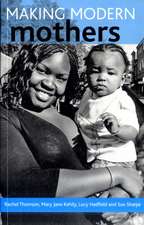Evolution of Vulnerability: Implications for Sex Differences in Health and Development
Autor David C. Gearyen Limba Engleză Paperback – 18 aug 2015
Evolution of Vulnerability begins by reviewing the expansive literature on traits predicted to show sex-specific sensitivity to environmental and social stressors, and details the implications for better assessing and understanding the consequences of exposure to these stressors. Next, the book reviews sexual selection—mate competition and choice—and the mechanisms involved in the evolution of condition dependent traits and the stressors that can undermine their development and expression, such as poor early nutrition and health, parasites, social stress, and exposure to man-made toxins. Then it reviews condition dependent traits (physical, behavioral, cognitive, and brain) in birds, fish, insects, and mammals to demonstrate the ubiquity of these traits in nature. The focus then turns to humans and covers sex-specific vulnerabilities in children and adults for physical traits, social behavior, psychological wellbeing, and brain and cognitive traits. The sensitivity of these traits is related to exposure to parasites, poor nutrition, social maltreatment, environmental toxins, chemotherapy, and Alzheimer’s disease, among others. The book concludes with an implications chapter that outlines how to better assess vulnerabilities in children and adults and how to more fully understand how, why, and when in development some types of environmental and social stressors are particularly harmful to humans.
- Describes evolved sex differences, providing predictions on the traits that will show sex-specific vulnerabilities
- Presents an extensive review of condition-dependent traits in non-human species, greatly expanding existing reviews published in scientific journals, and more critically, extending these to humans
- Applies condition-dependent traits to humans to identify children, adolescents, or populations at risk for poor long-term outcomes
Preț: 295.95 lei
Preț vechi: 326.52 lei
-9% Nou
Puncte Express: 444
Preț estimativ în valută:
56.64€ • 58.98$ • 47.87£
56.64€ • 58.98$ • 47.87£
Carte tipărită la comandă
Livrare economică 01-15 martie
Preluare comenzi: 021 569.72.76
Specificații
ISBN-13: 9780128015629
ISBN-10: 0128015624
Pagini: 444
Dimensiuni: 152 x 229 x 23 mm
Greutate: 0.7 kg
Editura: ELSEVIER SCIENCE
ISBN-10: 0128015624
Pagini: 444
Dimensiuni: 152 x 229 x 23 mm
Greutate: 0.7 kg
Editura: ELSEVIER SCIENCE
Cuprins
1. Vulnerability2. Sexual Selection and the Evolution of Vulnerability 3. Condition-Dependent Traits in Birds and Fish4. Condition-Dependent Traits in Arthropods and Mammals5. Sexual Selection and Human Vulnerability6. Human Vulnerability for Physical and Behavioral Traits7. Human Vulnerability for Brain and Cognitive Traits8. Implications for Human Health and Development
Recenzii
"...should stand as a reference source for a number of years, since the citations included a number from the year 2014, and since the final publication date of 2015 is almost as current as it is possible to achieve...a thought-provoking volume which is well worth the reading time and price." --Evolutionary Psychological Science
"This book will be of considerable value to readers interested in stress, sex differences, and environmental condition-dependence." --The Quarterly Review of Biology
"...a book of outstanding scholarship with impressive attention to detail…" --Human Nature
"This book will be of considerable value to readers interested in stress, sex differences, and environmental condition-dependence." --The Quarterly Review of Biology
"...a book of outstanding scholarship with impressive attention to detail…" --Human Nature
















